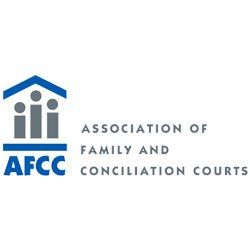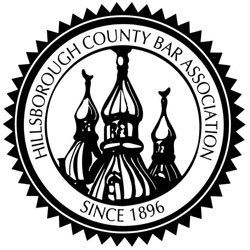Clinical Services for Divorce & Post-Divorce Stress
If you’re separated or divorced and feeling overwhelmed, you’re not alone. Florida was recently ranked as the 13th “most stressful state by personal finance website Wallethub (2017), largely because it has the 3rd highest divorce rate in the country. This raises the question, are we stressed because we are divorcing or are we divorcing because we are stressed?
Divorce, Stress & Adjustment: Individual and Family Therapy
It is obvious that divorce and interpersonal conflict go together, and it is well known that enduring conflict between divorcing parents is one of the most significant risk factors for children of divorce. For most children, divorce or separation is a traumatic event that devastates their sense of safety and security. Many children feel angry, confused, frightened, and guilty. Sometimes, a child feels responsible for the divorce. From a child’s perspective, they just want their parents to stop fighting.
7 Lessons from These 3 Girls ^1
- Kids of divorce need and want some simple things, like courteous communication between their parents.
- No matter how small the topic (birthdays, holidays, pickups, etc.), parent fights leave kids badly hurt.
- Kids don’t want one parent to win the fight; kids want one parent to stop the fight.
- Kids almost never care about the things we parents are fighting about; they just want the fights to stop.
- When parents fight, kids’ real needs can become invisible.
- Kids experience attacks between their parents as attacks on them.
- Parent fights can force kids to try to resolve adult issues – and to blame themselves when they fail.
Going through a divorce is a tough process for the entire family. It requires time, effort and support from both parents in order to heal. Parents may be worried about the future, feel angry, guilty, depressed and/or lost. Because divorce is so emotionally difficult, it often takes parents’ attention away from their children.
During and even after divorce, it is important that parents do not lose sight of the fact that there are two different relationships in the marriage – one is the marital relationship; the other is the parenting relationship. While parents will have an ex-spouse, the children are not going to have an ex-mother or ex-father. Supporting your children’s continued relationship and time with the other parent is a must, even if that means you will be alone part of the time. While you may be missing your children some percentage of time, your children are missing one parent 100% of the time.
In general, children whose parents focus primarily on the severed marital relationship, rather than the continued parenting relationship, experience more emotional and behavior difficulties. These difficulties vary according to the children’s age, as well as temperament. It is best to not project your own feelings and beliefs about the divorce or the other parent onto your children. Give them a voice and listen. Their opinions will likely fluctuate over time. Allowing your children to express their own thoughts and feelings will support their development as healthy, autonomous individuals with valued opinions.
At the South Tampa Divorce Concierge practice, individual and family therapy are available to assist you and your children in the process of redefining relationships and restructuring your family. Dr. DeGeso offers individual and play therapy sessions for children, individual therapy and parent coaching sessions for parents, as well as family therapy sessions as everyone adjusts to the stress and changes across two homes.
Specialized Treatment: Strategies to Manage High-Conflict Divorce
While popular divorce books and traditional divorce therapy encourage self-awareness, mourning the loss of the marriage and developing an open communication style for effective co-parenting purposes, expressing one’s true feelings, acknowledging vulnerability, and accepting responsibility for mistakes will bury the individual entangled in a divorce with a high-conflict spouse, especially when children are involved.
High-conflict individuals are not bad people. They just lack the strategies needed to effectively communicate their needs and wants, which often results in blaming others – usually their ex. They tend to create chaos and crises (they are especially fond of sending hostile text messages and emails) provoking the very response that makes you look like the difficult one. They make ongoing threats and file accusatory legal motions, play games with visitation schedules and child support, and bad-mouth you to others (even your children) in order to form alliances against you and prove that they are right. Under these attacks, intense and conflicting emotions, like anger and guilt are frequently experienced. It’s not uncommon to feel ashamed about your situation and as a result, isolate from family and friends who remind you that you need to “move on with your life” for the sake of the children.
For these reasons and more, Dr. DeGeso does not use a ‘one size fits all’ therapy approach; instead, she supports, educates, and works closely with you to develop personalized strategies for managing the frustration, stress, and nuances of your specific situation. Concierge therapy and coaching tailored to the specific demands of your high-conflict divorce, allow Dr. DeGeso to concentrate on the immediate issues at hand in order to provide you with the specialized strategies you and your family need.
If your divorce is making life unmanageable and you would like to change the way you react and interact with a difficult ex, working with a concierge psychologist who specializes in high-conflict divorce can help. Dr. DeGeso can assist you in gaining the strategies you need. She has the experience, compassion, and skill necessary to support and protect you and your family from the collateral damages of a high-conflict divorce. You do not have to do this alone. Contact the South Tampa Divorce Concierge practice today.
^1 Retrieved December 31, 2017 from uptoparents.com







